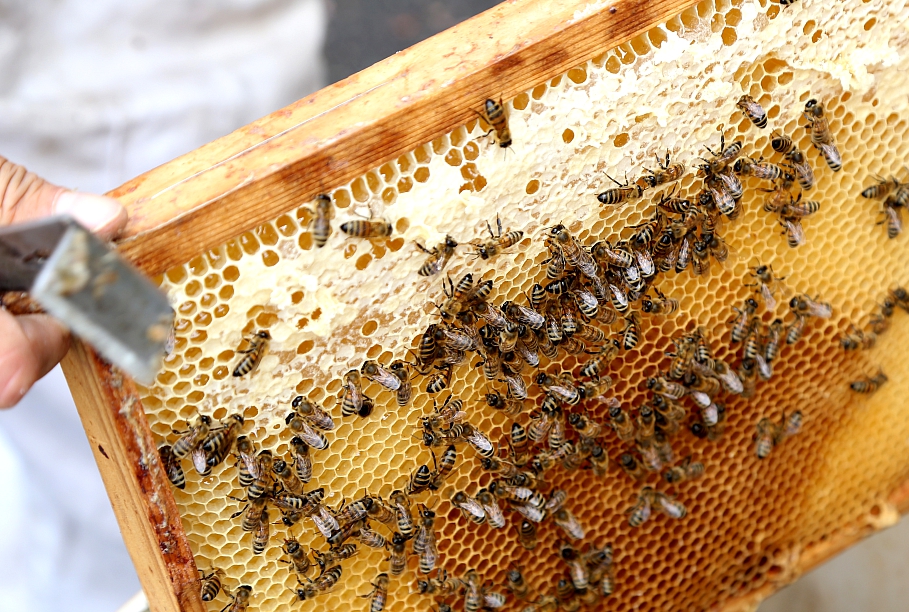For 10 years, Ilze Grava-Niķe has been working on urban beekeeping. She currently has approximately 20 hives in Imanta, Rīga, and some 50 more in a rural property. Ilze concluded that the city usually has a faster honey intake. Neighbors have got accustomed to bees, and there are no more prejudices against urban beekeeping.
"With urban beekeeping I need to look after the bees more [..] so they don't swarm or get in a neighbor's attic. And of course, I try to keep peaceful varieties. People in the city also like to have nature around, that greenery, and also the bee that has flown into that flower. I live well with my neighbors, and I'm relatively far from the neighbors, but we're also friendly here in the neighborhood, and the neighbors, of course, get some honey,” Grava-Niķe said.
Ilze is producing around 2 tonnes of honey on the farm. This year the yield will be above average. The beekeeper also estimated that the advantage of the city farm is the available market, and demand in Rīga for honey is also high this year.
A beekeeper in Blīdene parish, Jānis Vainovskis, said that about half of the usual honey harvest has already been collected on the holding, but there was still room for yield from heather, buckwheat, and goldenrod. He forecast that the farm would have yields below average this year.
Moreover, this year the beekeeping sector also faces challenges due to increased energy resources. “For example, if we had to pay €350 per month for energy consumption, then we now have to pay around €1,000 for production – drying, heating, throwing, and so on. Despite the fact that we have an increase of 100% to 130% for production this year, we will only put around 10% at the price of the end product, because we're not too confident about purchasing power [..] And we can't think about investment at all, although we should do it every year,” Vainovskis said.
Juris Šteiselis, head of the Council of the Latvian beekeeping association, estimated that the cost of honey will increase due to fuel costs in the large farms, where hives are often transported.
He said that, along with the cool spring and late plant blooms, there are large variations in harvests in Latvia as a whole. “Despite their bad start in the spring, this year maybe overall yield will be even slightly above average, [..]. Honey, however, is not a commodity of first necessity for many people, so it is difficult to predict how the price for honey will change. And whether beekeepers will be able to raise the price in line with inflation,” Šteiselis said.
The change in demand will be seen clearer at the end of the month. According to data from the beekeeping association, there are currently around 3,000 beekeepers in Latvia, with more than 100 thousand beehives.





























